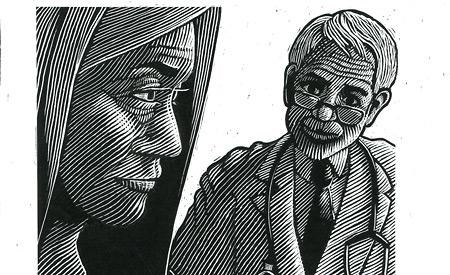Although stigma may result in people experiencing mental illness not seeking help, there are a variety of services available in the community for those in need.
Powell River Mental Health and Addiction Services on the third floor of Powell River General Hospital offers a variety of programs and services. From inpatient psychiatric care to residential home care to psychogeriatric outreach, the staff at mental health does what it can to get out into the community and bring the community through its doors.
Two case managers and a residential coordinator make up the three nurses that the hospital has working for mental health. Staff at mental health said the most important aspect of treating mental illness is to diagnose and treat early. The onset of major mental illness often occurs during a person’s teenage years or early 20s, when fears of label and stigma are highest.
“The earlier the treatment starts, the better the outcome,” said manager Nora Koros. “We have the resources to help people...we have the will to help people and we want everybody to live the best possible life regardless of their illness.”
For people who have a mental illness, feelings of alienation and isolation can contribute to their symptoms. Unfortunately, because of stigma, shame or the very nature of the illness, many people with mental illnesses often seek isolation or have a hard time reaching out.
Since 1987 Powell River’s Source Club has been providing a place for people with mental illness to go, a community to join and the opportunity to contribute in an atmosphere entirely free of stigma. The program is funded by Vancouver Coastal Health, while the clubhouse is owned by the Source Club Society.
The services are for adults with chronic, persistent mental illness. The club hosts a thrift store at its Cumberland Place location and also operates the Food for Thought Café at Vancouver Island University Powell River campus. The café gives clients an opportunity to contribute, learn essential job skills and be involved in a project with other people.
“This start...at least gives them purpose and an actual job in the community,” said Jenn Minard, vocational skills worker. “It’s a real step toward their well-being. When people come here the idea is that everybody has been here, they’ve been through that, they know what that looks like.”
The first step to getting help for mental illness, for those who are aware they are struggling, is to talk about it. This can mean talking to a friend or family member, but for those who want professional help it can be as simple as mentioning something to a family doctor.
Dr. Stephen Burns is a family physician with the Medical Clinic Associates. He said family doctors often provide the first avenue for a person struggling with a mental health problem to seek help. Whether it’s the first signs of a potentially serious illness or the ongoing struggle with common anxiety or depression, a family doctor is a safe first step. Often initial diagnosis and, for average cases, the entire degree of care may be available through the family doctor.
Family doctors have a number of screening tests they can give people when there is a suspicion of mental illness. In cases of mild to mid-range depression and anxiety often treatment is decided directly by the family doctor and is completely confidential.
“It’s probably not as bad as it used to be but there still is considerable reluctance for people to admit that they have problems, especially if it’s a first diagnosis,” said Burns. “People, I think, get more concerned about issues of stigma and confidentiality [with] the more people that get involved.”
This is the second in a three-part series on mental health.



